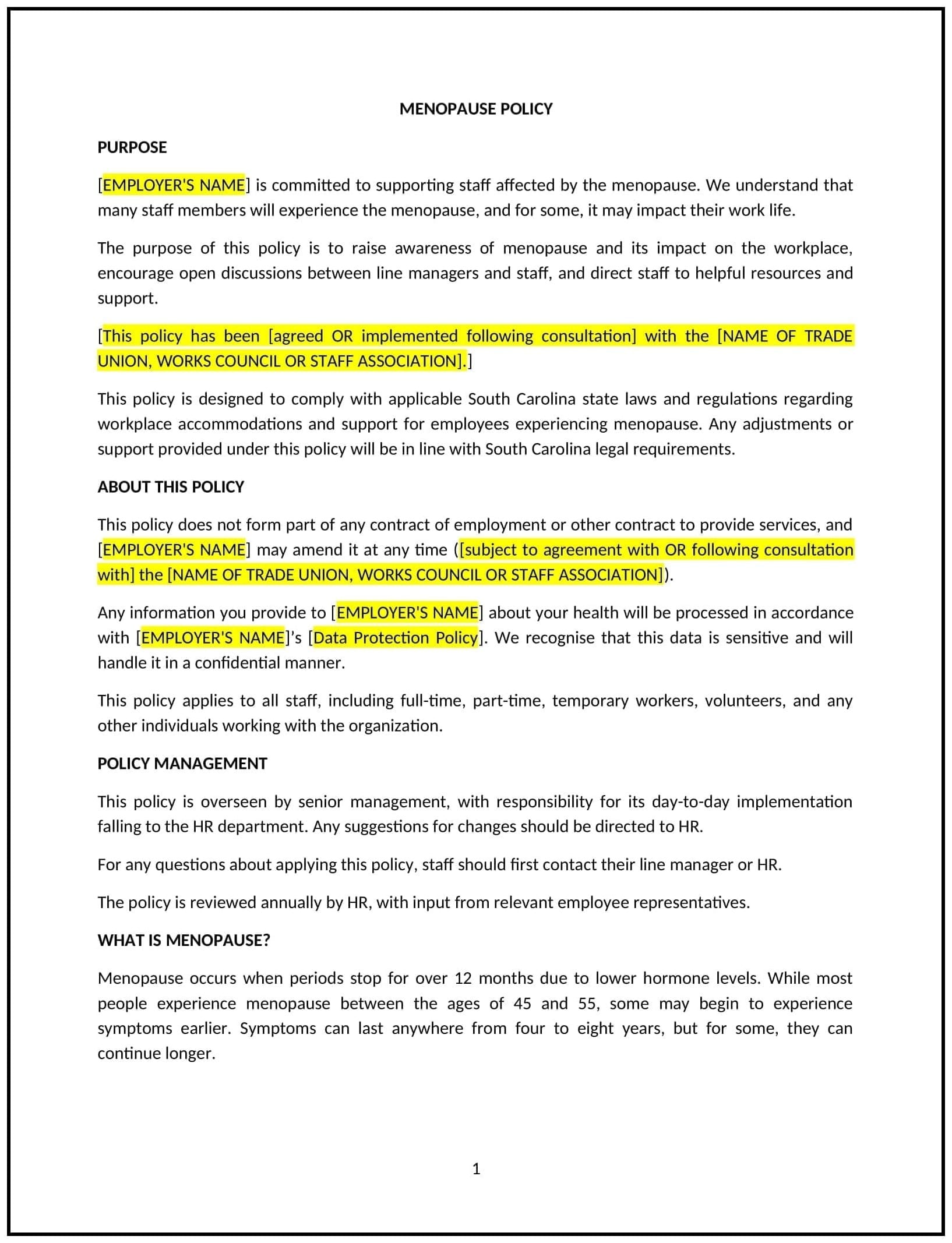Got contracts to review? While you're here for policies, let Cobrief make contract review effortless—start your free review now.

Customize this template for free
Menopause policy (South Carolina)
This menopause policy is designed to help South Carolina businesses establish guidelines for supporting employees experiencing menopause. It outlines procedures for providing accommodations, fostering open communication, and creating a supportive work environment.
By adopting this policy, businesses can promote inclusivity, enhance employee well-being, and align with general best practices for workplace health and wellness.
How to use this menopause policy (South Carolina)
- Define menopause: Explain what menopause is and its potential impact on employees, such as physical and emotional symptoms.
- Establish support measures: Outline accommodations, such as flexible work schedules, access to cooling facilities, or additional breaks.
- Address communication: Encourage open dialogue between employees and managers to discuss needs and adjustments.
- Provide training: Educate managers and employees on menopause and its impact in the workplace.
- Monitor effectiveness: Regularly review the policy to ensure it meets the needs of employees experiencing menopause.
- Review and update: Assess the policy annually to ensure it aligns with evolving business needs and health standards.
Benefits of using this menopause policy (South Carolina)
This policy offers several advantages for South Carolina businesses:
- Promotes inclusivity: Demonstrates a commitment to supporting employees of all ages and life stages.
- Enhances employee well-being: Provides accommodations to help employees manage menopause symptoms effectively.
- Aligns with best practices: Offers a structured approach to addressing menopause in the workplace.
- Builds trust: Shows employees that the business values their health and well-being.
- Reduces turnover: Encourages employees to stay with the business by creating a supportive work environment.
Tips for using this menopause policy (South Carolina)
- Communicate the policy: Share the policy with employees and include it in the employee handbook.
- Provide training: Educate managers and employees on menopause and its impact in the workplace.
- Monitor adherence: Regularly review accommodations and support measures to ensure they are effective.
- Address issues promptly: Take corrective action if employees feel unsupported or accommodations are not provided.
- Update regularly: Assess the policy annually to ensure it aligns with evolving business needs and health standards.